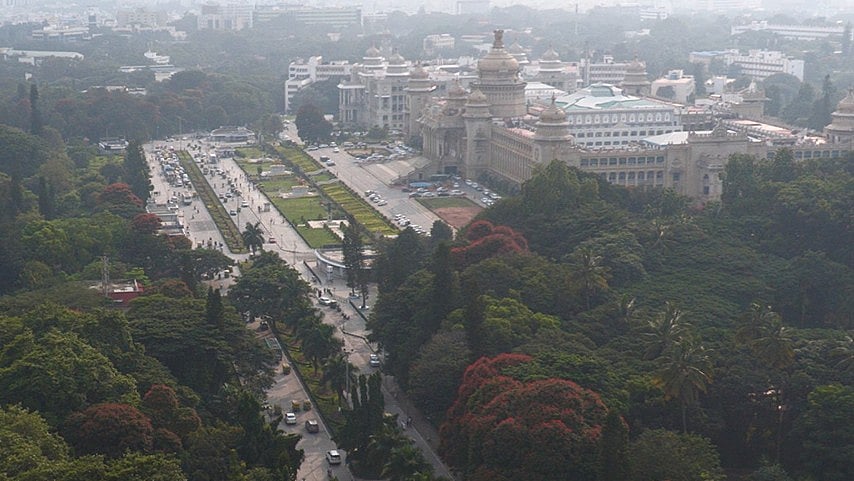
View of Bengaluru city.
Credit: DH Photo
Bengaluru: Bengaluru is set to witness a major shift in municipal governance as the Karnataka government will officially enforce the controversial Greater Bengaluru Governance Act on Thursday. The Act, which was in the making for the last one year, is expected to diminish the powers of city councillors — who have already been out of office for nearly five years — while giving MLAs a greater control over city affairs.
Although the GBG Act allows the creation of up to seven corporations within the city, the existing structure and name of the Bruhat Bengaluru Mahanagara Palike (BBMP) will remain unchanged until the government formally restructures the civic body. The Act provides 120 days to establish the Greater Bengaluru Authority (GBA), a new entity carrying both financial and planning powers.
On Wednesday, the government issued a notification stating that the GBG Act would come into effect on May 15. The implementation comes amidst strong concerns from several civic groups who argue that key provisions of the Act violate the 74th Amendment of the Constitution, which mandates decentralised urban governance.
With the Act coming into force, the government is expected to initiate discussions on redrawing the boundaries of the Greater Bengaluru Area, currently spread over 709 square kilometres. A committee may be constituted to gather inputs from MLAs and the public as part of this process.
As per preliminary plans, the government is considering expanding the city’s jurisdiction by 200–250 square kilometres, potentially bringing 25 to 30 'developed' panchayats on the urban fringe under the corporation’s limits.
In addition to redrawing boundaries, the Act empowers the government to establish the GBA, which will function as a coordinating body between the new corporations and key parastatal agencies including the Bangalore Development Authority (BDA), Namma Metro, traffic police and the Bengaluru Smart Road Infrastructure Ltd.
Critics argue that the Act undermines the spirit of local self-governance by centralising power in the hands of the GBA and sidelining elected councillors.
Kathyayini Chamaraj, executive trustee of Civic Bangalore, a citizens’ collective, said the Act violates the principles of the 74th Amendment. "Planning and financial powers are concentrated in the GBA. The smaller corporations will be limited to routine tasks like pothole repairs. Any project that spans multiple corporations will fall under the GBA's jurisdiction. This means Bengaluru won’t have a metropolitan mayor like big cities such as London or New York," she said.
She also wondered why should a provincial head like the chief minister, who is elected from somewhere in Mysuru, govern Bengaluru.